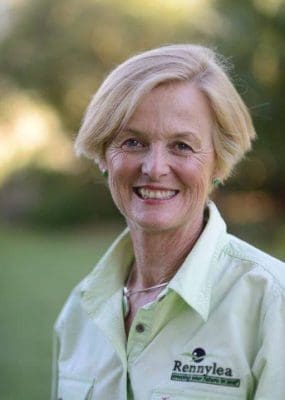FARMERS in Australia are leading the charge in reducing emissions on-farm, based on sound science, and are demonstrating a way forward for policy makers to assist in achieving their objectives.
This was a key message from chair of the Crawford Fund and former Deputy Prime Minister John Anderson while addressing an event held in Canberra today titled “What Can Farmers Do? Farmer-led, Science-Based GHG Mitigation”.
The event was co-hosted by the Crawford Fund and the Australian Centre for International Agricultural Research with a focus on how innovation in Australia could be better informed by science, and better inform farmers in developing countries.
In addition to the audience at the event it was also viewed by an additional online audience of over 350 people from 25 countries.
The event coincides with the Council meeting of the Global Research Alliance on Agricultural GHG Emissions, with 64 member countries and 24 global partners, and was also sanctioned as an official Independent Dialogue of the UN’s Food Systems Summit.
“It’s such a good-news and win-win story. We want the community to understand just how much Australian farmers are already achieving on their farms, and also the importance of cooperation and investment in research activities to reduce agricultural GHG emissions,” Mr Anderson said.
Lucinda Corrigan of Rennylea Pastoral Company in the SW slopes of NSW, reported that Australian farmers, like those in poorer countries in our region, are some of the most vulnerable to the impacts of climate change.
“Long term investments in adaptation to climate change have reached a ceiling for early adopters in some industries and we are looking for new tools to continue those improvements. These investments have not only helped to improve productivity but also lower emissions intensity and total emissions,” she said.
Mark Wootton has doubled production and reached carbon neutrality at Jigsaw Farms in SW Victoria, where carbon neutral beef, lamb, wool, and high value timber are produced.
“To replicate carbon neutrality for Australian agriculture we need much better policy settings then we have now. This will allow technologies and science-based knowledge systems to be further developed. We need to devise more flexible, energy efficient and climate resilient systems. Doing more of what we do now just won’t work!”
Richard Eckard, Professor of Sustainable Agriculture at the University of Melbourne and Director of the Primary Industries Climate Challenges Centre explained that the largest single source of agricultural emissions is methane from livestock digestion.
“Of the 100 largest economies in the world, 69 are companies – not countries. Many are setting emission reduction targets for agricultural supply chains to match the Paris agreement. Government targets might not be as influential as supply chain targets in driving change in agricultural GHG emissions,” he said.
“Options to reduce livestock methane emissions show great potential but are more suited to intensive livestock production systems. The real challenge is to develop mitigation options for the more extensive grazing industries in Australia and in poorer countries that are low cost, low intervention and inter-generational – early life programming of livestock is one of these emerging options,” he said.
Maartje Sevenster, Senior Research Scientist, Climate Smart Agriculture at CSIRO works on GHG accounting principles.
“To achieve real GHG mitigation we need science as well as good accounting methods so that achievements can be reported and communicated along value chains. In addition, the cost of soil sampling is a major barrier for mitigation in cropping systems,” she said.

